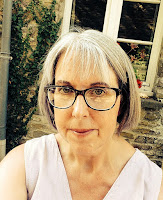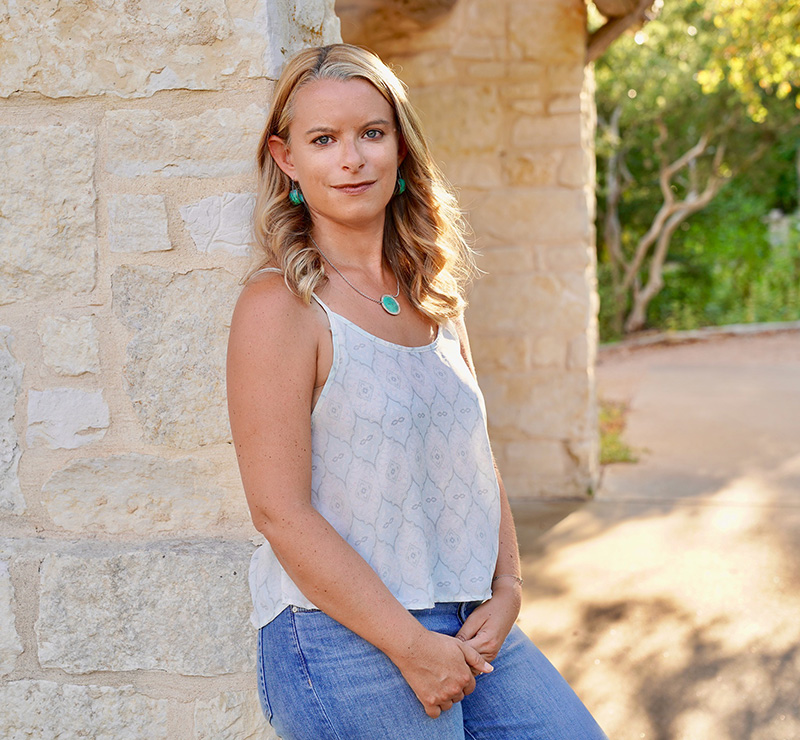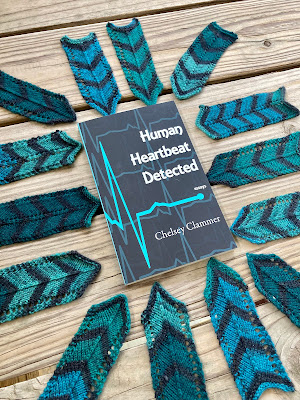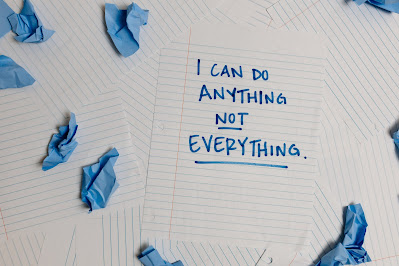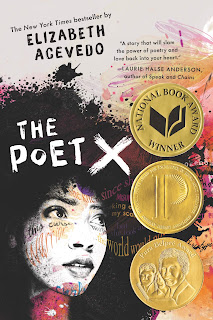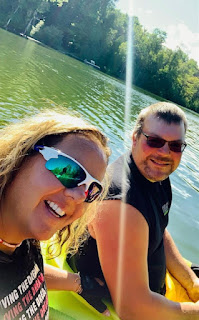I'm excited to announce the launch of Helena P. Schrader's blog tour of Moral Fibre. Continue on to read more about this exciting historical fiction novel, read an interview with the author, and win a copy of the book. This book is perfect for people who are interested in an authentic portrayal of life in wartime Britain combined with high-tension action and moving romance.
First, a bit about Moral Fibre:
Riding the icy, moonlit sky—
They took the war to Hitler.
Their chances of survival were less than fifty percent.
Their average age was 21.
This is the story of just one bomber pilot, his crew, and the woman he loved.
It is intended as a tribute to them all.
Flying Officer Kit Moran has earned his pilot’s wings, but the greatest challenges still lie ahead: crewing up and returning to operations. Things aren’t made easier by the fact that while still a flight engineer, he was posted LMF (Lacking in Moral Fibre) for refusing to fly after a raid on Berlin that killed his best friend and skipper. Nor does it help that he is in love with his dead friend’s fiancé, but she is not yet ready to become romantically involved again.
Publisher: Cross Sea Press
ISBN-10: 1735313993
ISBN-13: 978-1735313993
Print Length: 436 pages
About the Author, Helena P. Schrader
Helena P. Schrader is an established aviation author and expert on the Second World War. She earned a PhD in History (cum Laude) from the University of Hamburg with a ground-breaking dissertation on a leading member of the German Resistance to Hitler. Her non-fiction publications include
Sisters in Arms: The Women who Flew in WWII,
The Blockade Breakers: The Berlin Airlift, and
Codename Valkyrie: General Friederich Olbricht and the Plot against Hitler. In addition, Helena has published eighteen historical novels and won numerous literary awards. Her novel on the Battle of Britain,
Where Eagles Never Flew won the Hemingway Award for 20th Century Wartime Fiction and a Maincrest Media Award for Historical Fiction. RAF Battle of Britain ace Wing Commander Bob Doe called it "the best book" he had ever seen about the battle.
Traitors for the Sake of Humanity is a finalist for the Foreword INDIES awards.
Grounded Eagles and
Moral Fibre have both garnered excellent reviews from acclaimed review sites such as Kirkus, Blue Ink, Foreword Clarion, Feathered Quill, and Chantileer Books.
--- Interview by Nicole
WOW: You have such an incredible and interesting background. How do you pull from your own past experiences and knowledge to write such realistic historical fiction?
Helena: It is undoubtedly true that I draw upon knowledge I have gained from life, particularly about human nature and behaviour, when writing my novels. On the one hand, anyone who has lived a few decades accumulates a great deal of experience with human beings that can be exploited when writing. On the other hand, living overseas and working as a diplomat brought me in contact with different cultures and customs and also gave me deeper insight into the workings of political and economic systems because I was tasked with analysing the later and had exceptional access to information.
For example, while I was in Ethiopia there were a number of ethnically motivated attacks on factories. It was my job to visit the factories and interview the owners, staff, and leaders in the nearby communities. It rapidly became evident that far from being exploitive and dangerous, these factories were providing employment and in some cases model working conditions for the very ethnic group that was now smashing things up. In short, a small group of radicals were destroying the livelihood and economic future of the majority in the name of “liberating” them. That theme of self-serving political radicalism undermining economic development has become a recurring theme in my novels. Without that first-hand experience talking to the victims, I doubt I would be able to bring the issue across so vividly.
WOW: That first-hand experience is so valuable! You have written an impressive 18 novels! What advice do you have for people interested in writing historical fiction?
Helena: The most important thing to remember — speaking as someone who has published both non-fiction history books and historical fiction — is that research for historical fiction is much more demanding and comprehensive than for non-fiction. In non-fiction it is enough to get “the facts” right, lined up correctly, and then write in an engaging style. Significantly, non-fiction can be written in modern language using the author’s voice.
By contrast, when writing historical fiction, the “facts” are not enough. Facts don’t tell you how people felt, why they did the things they did, what they believed in, hoped for and feared. Let me give you an example. I wrote a successful non-fiction book about women pilots in WWII. I researched and wrote detail about the recruitment, training, employment conditions, and achievements of these women pilots. And that was it. A novel about the same subject, on the other hand, would need to make the women come to life by talking about the political issues that might agitate or divide them. It would have to take into account and depict the social conditions that confronted them and created tensions between them. It would have to describe contemporary fashion (i.e. what they were wearing off duty), what music was popular at the time, the foods the women were likely to eat and the kind of entertainment they would have enjoyed. Challengingly, the characters would also need to use the language — jargon and expressions, and syntax — of the period. In other words, a novel needs to be more than accurate. It needs to feel authentic as well.
WOW: I love how you describe that contrast. What was your process to develop characters?
Helena: Well, to be honest, I don’t so much develop my characters as work with them as they gradually reveal themselves to me. I’ve found the best thing to do is to take a stab at describing them and what they are doing/thinking/feeling etc. and wait for a reaction. If I’ve misunderstood something, the character will usually tell me off (often in the middle of the night) and I’ll go back and rework the scene based on what they revealed to me. (FYI: I have never seen nor a character with my senses, rather I have flashes of understanding communicated directly as thought.) I rewrite a scene until the character is satisfied with it. As a rule, the deeper I am into a novel, the easier it is for me to understand the character and so the easier it is to anticipate their reactions to events (the plot) and also to describe them and their actions/thoughts/feelings via the written word.
WOW: I think that is the best type of characterization method! How did this novel change from first draft to final draft?
Helena: This is an excellent example of the above phenomenon. Initially the hero of Moral Fibre, Kit Moran, contacted me and insisted that I write his story. He was very convincing. I interrupted the project I was then working on, undertook a massive amount of research to be able to put his story into context, and wrote a novella depicting, mostly through flashbacks, the events that resulted in him being thrown off his squadron for “lacking moral fibre” (i.e. for cowardice). No sooner was the novella published, however, than Kit pointed out that the novella was only the “teaser;” the real story was what came afterwards. Again, all other projects were put on hold as I set about writing Moral Fibre. By then I knew Kit well and writing his story was not difficult, but, you see, the period of his life that I was writing about in Moral Fibre was when he fell in love with Georgina.
Georgina, however, was a modest and shy girl, who initially felt the book ought to be all about Kit, so she didn’t communicate with me directly. I only knew her through Kit’s eyes. The first draft was, therefore, almost entirely seen from Kit’s perspective. Yet it was really just half the story. I needed more from Georgina. As I started on the second of six re-writes (I always write about seven drafts), Georgina finally started to communicate with me, and I began to both understand her better and see the world through her eyes. The book expanded by 40% as it grew to encompass both storylines, Kit’s and Georgina’s. It is a much stronger novel as a result.
WOW: What do you hope readers take away from reading your story?
Helena: My motto as a novelist is: “Understanding ourselves by understanding the past.” The point is that my novels are always as much about today as they are about the past. While Kit and Georgina are depicted living in specific historical circumstances, the challenges they face and the choices they have to make are ones we could confront in different forms and guises today. This book is not so much a “war story” or a “love story” (although it is both) as a book about the many faces of courage and grief — and about the price of survival. I hope the novel will remind each of us to recognize the debts we owe to others — most especially to the dead.
WOW: I hope so too! What are you currently working on that you can tell us about?
Helena: I’ve returned to the project that I postponed twice in order to tell Kit’s story. It is the first of what I believe will be three novels set against the backdrop of the Berlin Airlift. This was when the Russians abruptly cut off all food, electricity, medicine and other necessities to the two million people living in the western sectors of Berlin. The Russians expected an easy victory, with the Berliners embracing Communism to end the blockade while the Western Powers withdrew from Berlin in disgrace. Instead, the Western powers launched a massive airlift, while the Berliners defiantly demonstrated their willingness to endure powdered food, bitter cold, sporadic electricity and other forms of hardship rather than accept a Communist take-over. The Airlift turned into a Western triumph, the first clear victory of the Cold War, but that outcome was neither inevitable nor obvious at the start. The intrigues and tensions between former allies and the development of trust between former enemies are the perfect ingredients for many great historical novels. I hope mine will awake interest for this remarkable historical drama.
WOW: That sounds incredible and I can't wait to see it come out! Best of luck with your book and thank you for your time today!
--- Blog Tour Calendar
August 15th @ The Muffin
Join us as we celebrate the launch of Moral Fibre by Helena P. Schrader. Read more about this fascinating historical fiction novel and learn more about the author. You can also enter to win a copy of the book too!
August 17th @ Deborah Adams' Blog
Deborah Adams features Helena P. Schrader's guest post about dissecting a novel.
August 19th @ Life According to Jamie
Join Jamie as she reviews Moral Fibre by Helena P. Schrader.
August 21st @ What Is That Book About?
Join Michelle as she features Moral Fibre by Helena P. Schrader.
August 22nd @ Mindy McGinnis' Blog
Join Mindy as she features a guest post by Helena P. Schrader about how editors are not optional.
August 23rd @ Lisa Haselton's Book Reviews and Interviews
Don't miss an interview with author Helena P. Schrader about her book Moral Fibre.
August 24th @ A Writer of History
Read Helena P. Schrader's guest post about the challenges of designing book covers for historical fiction.
August 25th @ Bring on Lemons
Join Crystal as she reviews Moral Fibre by Helena P. Schrader.
August 26th @ Bookshelf Journeys
Read Terri's review of Moral Fibre by Helena P. Schrader.
August 27th @ Mercedes Rochelle's Blog
Read Helena P. Schrader's guest post featuring her book Moral Fibre.
August 30th @ World of My Imagination
Join Nicole as she reviews Moral Fibre by Helena P. Schrader.
September 1st @ The Faerie Review
Check out a spotlight of Moral Fibre by Helena P. Schrader.
September 2nd @ Author Anthony Avina
Anthony reviews Moral Fibre by Helena P. Schrader.
September 5th @ Choices
Join Madeline as she features a guest post by Helena P. Schrader about the author and the seven drafts.
September 10th @ A Storybook World
Join Deirdre as she features Moral Fibre by Helena P. Schrader.
September 12th @ Word Magic
Fiona shares a guest post by author Helena P. Schrader about the lack of moral fibre.
September 17th @ Jill Sheets' Blog
Visit Jill's blog today where she interviews author Helena P. Schrader.
September 18th @ Wildwood Reads
Join Megan as she reviews Moral Fibre by Helena P. Schrader.
***** BOOK GIVEAWAY *****
Enter to win a copy of Moral Fibre by Helena P. Schrader by filling out the Rafflecopter form below. The giveaway ends August 28th at 11:59 CT. We will announce the winner the next day in the widget and follow up by email. Good luck!
a Rafflecopter giveaway


